Introduction to the alternative timeline
Table of Contents
The world of the Engineering corps is set in a world with magic, in an alternative France in the 1840s. This article presents a list of the main alterations compared to real history.
No colonisation
In 1433, China stopped its big naval explorations due to their enormous costs. This left the Europeans free to become the masters of the ocean and to develop some unique water and weather-based magic.
However, people living on a land will have a magical link with it. This link makes it easier to perform some kind of magic on this land, as well as to use the magic of the land to repel invaders. Because of this, colonisation of other continents has been impossible. Although inter-marriages have taken place, the children produced by such marriages have mixed loyalties and have proven reluctant to obey some far away monarch.
Nevertheless, despite its undeniable power, this link with the land is also diffuse. This means that one European is linked to the whole European continent rather than just their own country, and so Europeans can still attempt to conquer each other—but only within certain limits, as Napoléon has learnt at his own cost.
Instead of colonising other continents, European travellers have established trade alliances with them, and with their permission, a few of them have settled in specific quarters in some of their port cities. However, they are very much there on tolerance only and keeping good relationships with their host is essential. It is common for rival European countries to attempt to sway the host to their own side.
However, people living on a land will have a magical link with it. This link makes it easier to perform some kind of magic on this land, as well as to use the magic of the land to repel invaders. Because of this, colonisation of other continents has been impossible. Although inter-marriages have taken place, the children produced by such marriages have mixed loyalties and have proven reluctant to obey some far away monarch.
Nevertheless, despite its undeniable power, this link with the land is also diffuse. This means that one European is linked to the whole European continent rather than just their own country, and so Europeans can still attempt to conquer each other—but only within certain limits, as Napoléon has learnt at his own cost.
Instead of colonising other continents, European travellers have established trade alliances with them, and with their permission, a few of them have settled in specific quarters in some of their port cities. However, they are very much there on tolerance only and keeping good relationships with their host is essential. It is common for rival European countries to attempt to sway the host to their own side.
French history
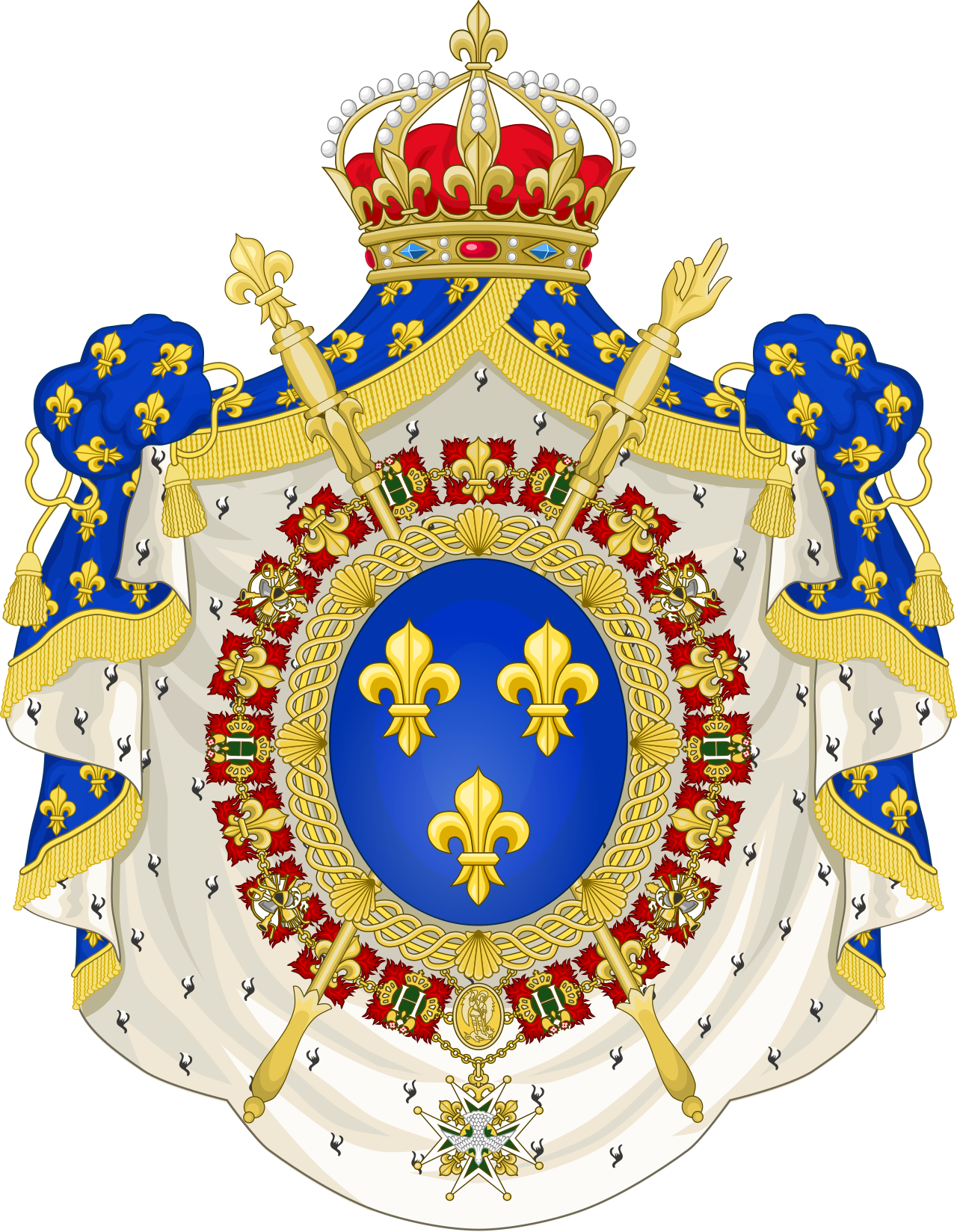
French royal coat of arms by Louis de Lauban

King Lucien by AmélieIS, Guérin and Artbreeder
After the revolution of 1789 and the execution of King Louis XVI in 1793, France opted to establish an elective constitutional monarchy. However, this triggered a series of wars against a coalition of the other European countries who wanted to reinstate the royal family on the throne. Thus, the first elected kings of France were military leaders, cumulating with the election of Napoléon. At Napoléon's death, however, the British interfered with the election to have king Louis XVIII elected and the "proper" dynasty back on the throne. After Louis XVIII's death, the British also managed to have his brother, Charles X, elected. Nevertheless, Charles X proved to be extremely unpopular, and his behaviour triggered a new revolution that saw him banished from France.
There was then some talk of installing Napoléon's now adult son on the throne, however after being raised in Austria by the enemies of France, his loyalty could not be fully trusted. A conflict was prevented when it became known that the prince was sick with pneumonia and unlikely to live long (he would die two years later in 1832). Instead, a new extremely popular military leader who was widely considered to be the true heir to Napoléon's spirit was elected. Soon after his election, King Lucien had to face a war against yet another coalition of Britain, Prussia, Russia, and Austria—and the Austrian Flanders—who were all contesting the results of the election.
France was losing the war until King Lucien revolutionised the army further than Napoléon had had the time to do. This made the new king incredibly popular in the country and consolidated his power. A peace treaty was then signed between France and the coalition, which resulted in France being given the South of the Austrian Flanders, including the city of Lille.
After a few years of peace, France is now once again at war with Prussia.
There was then some talk of installing Napoléon's now adult son on the throne, however after being raised in Austria by the enemies of France, his loyalty could not be fully trusted. A conflict was prevented when it became known that the prince was sick with pneumonia and unlikely to live long (he would die two years later in 1832). Instead, a new extremely popular military leader who was widely considered to be the true heir to Napoléon's spirit was elected. Soon after his election, King Lucien had to face a war against yet another coalition of Britain, Prussia, Russia, and Austria—and the Austrian Flanders—who were all contesting the results of the election.
France was losing the war until King Lucien revolutionised the army further than Napoléon had had the time to do. This made the new king incredibly popular in the country and consolidated his power. A peace treaty was then signed between France and the coalition, which resulted in France being given the South of the Austrian Flanders, including the city of Lille.
After a few years of peace, France is now once again at war with Prussia.
Gender roles
Because of magic, there is no official gender-based discrimination. Some individuals may have very defined notions of what occupations a "proper lady" should and should not have, just as they do for gentlemen. The rest of the French population sees such views as leftovers from the Ancient Regime and so they highly disapprove of them.
Women are fully integrated into the army and can be in positions of power. Nevertheless, this apparent equality is weakened by several elements:
- Women are not called when conscription is established in time of war, although they can still volunteer. This is mainly to avoid having pregnant women involved in the battlefield. In addition, society would not recover if a whole generation were to fight and die at the same time, and some people need to stay behind to participate in the war effort. Having women be those persons is seen as just being more convenient.
- France is the only European country with a law forbidding women from leading the country as a reigning queen, the Salic law. It was established to prevent the English kings from claiming the kingdom of France and led to the Hundred Years War between France and England. As a result, men are still seen as having a superior natural authority.
Technology
The industrial revolution
Burning coal can be used to magically power machines since when animals and plants die and form coal and oil, their magic accumulates inside of them. Thanks to this, an industrial revolution is starting in Europe, slowly transforming familial crafts into big scale manufacture.Military technologies
Black powder and gun powder do not work as they do in our world. The presence of magic in the air makes them too unstable and makes it impossible to control the explosion. Because of this, military technologies diverged. However, new magic-based weapons have been developed instead. These include:- high-range assistance artefacts allowing mages to attack from long distances.
- levitation- and wind-based magic to send projectiles at enemies.
- alchemical solutions to use as projectiles.
- the brand new camouflage uniform of the French army.
- glass that can allow its user to see magic up to a certain level.
- watches that can indicate where the object to which they are keyed is located.
Military education
The military engineering corps is at the origin of those technologies and its members are now highly regarded in the whole kingdom. This effect was enhanced by the election of one of its members as king with King Lucien, just as Napoléon's election had raised the prestige of the artillery corps. All of this is regarded with a lot of bemusement by the rest of Europe who still regard the cavalry as the best military corps—a fact that undoubtedly contributes to their incessant defeats at the hand of the isolated French kingdom.Getting into the French artillery or engineering corps is incredibly difficult. Graduation from one of the French military schools such as the École Polytechnique is necessary, and their entrance exams are said to ask applicants to solve mathematical problems that are barely within the knowledge of fully graduated engineers and artillerists in other countries. In order to prepare for those exams, young people will enter boarding schools and will be submitted to a rigorous and gruelling schooling for a minimum of two years before they can attempt to pass the exams. Few applicants pass on their first attempt.


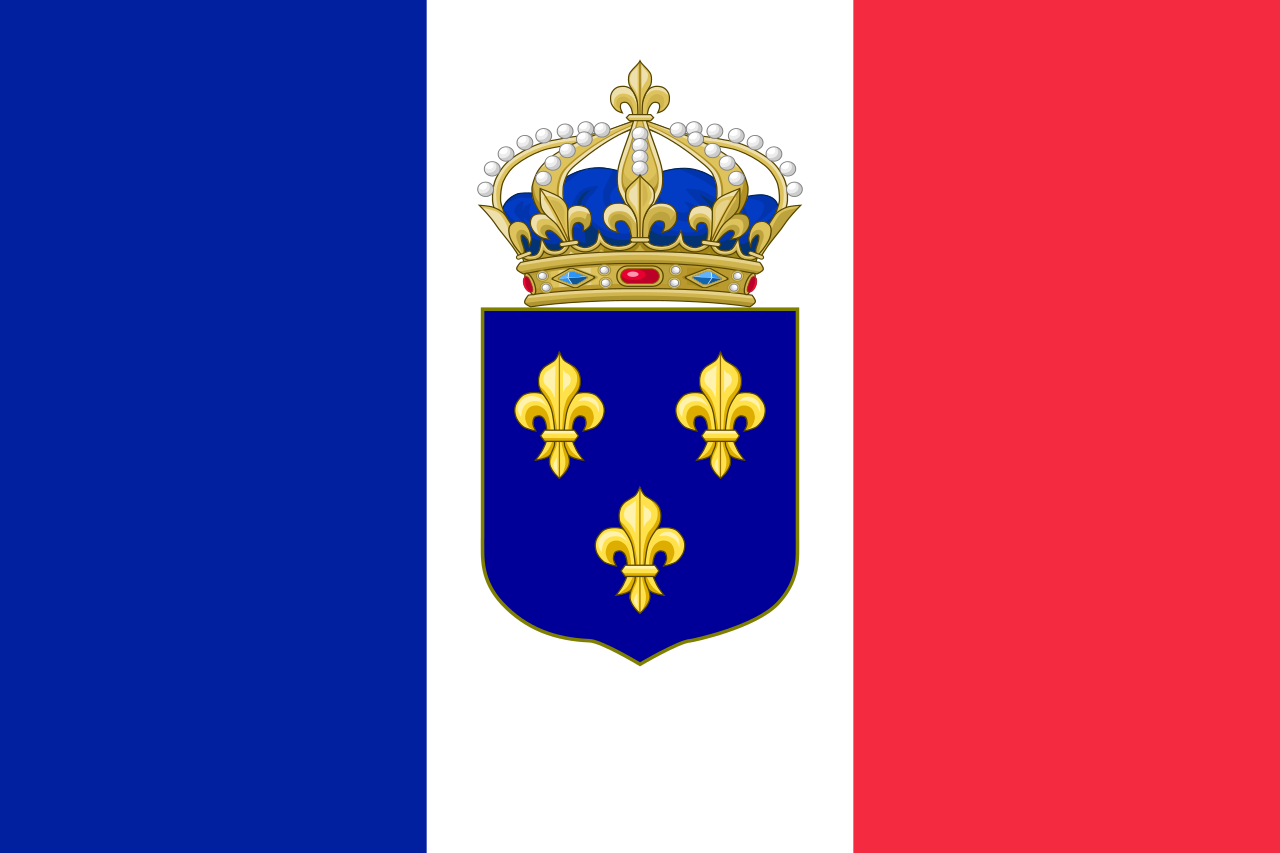
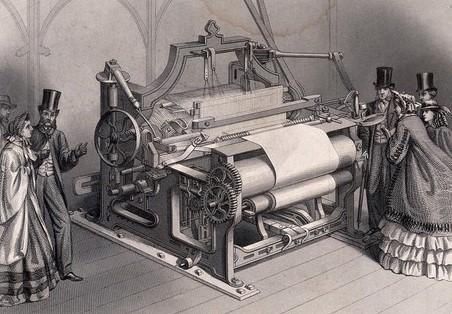
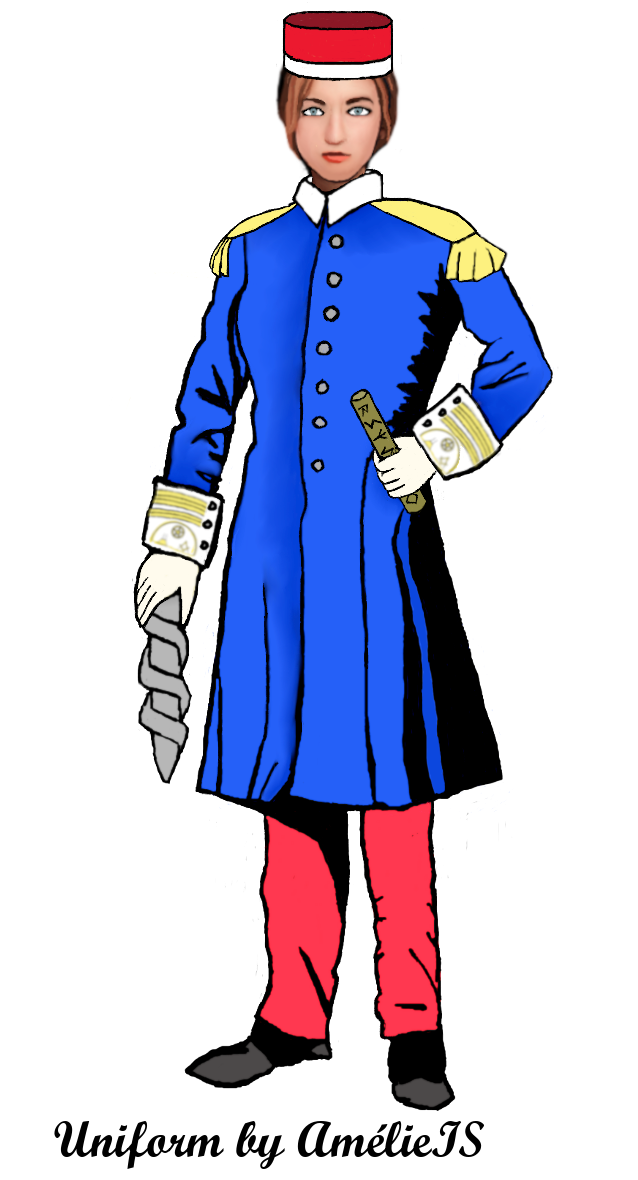
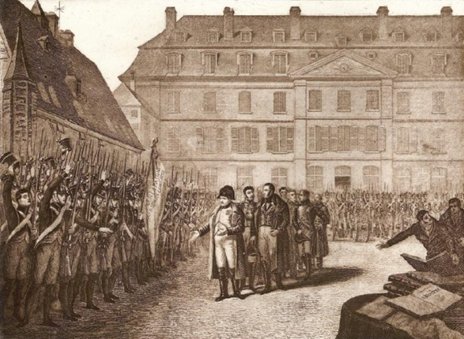


I love this article!
Thanks, I'm glad you like it :D